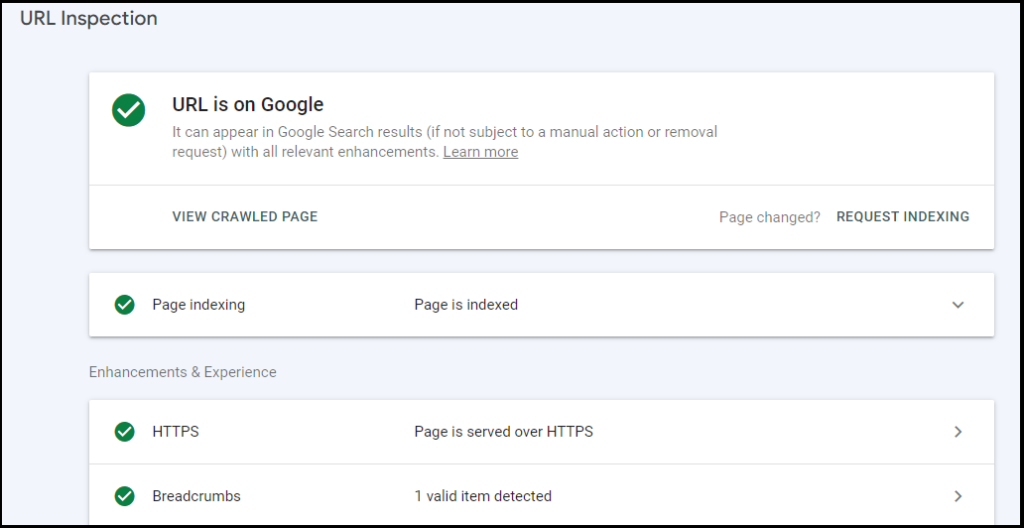In the expansive digital landscape, having a strong online presence is essential for businesses and individuals alike. Whether you’re running a website for your business, blog, or personal project, ensuring that your content is discoverable is paramount. This is where tools like Google Search Console come into play, offering invaluable insights and functionalities to optimize your website’s performance in Google Search results.
Understanding Google Search Console
Google Search Console, formerly known as Google Webmaster Tools, is a free service provided by Google that helps website owners monitor, maintain, and troubleshoot their site’s presence in Google Search results. It offers a wealth of information about how Google perceives your site, including indexing status, search queries, backlink data, and more.
Key Features and Benefits :
Performance Monitoring : One of the primary functions of Google Search Console is to provide insights into your website’s performance in Google Search. It offers data on impressions, clicks, click-through rates (CTRs), and average position for specific search queries, pages, countries, and devices. This information helps you understand which keywords and pages are driving traffic to your site, allowing you to refine your content strategy accordingly.

Index Coverage : The Index Coverage report in Google Search Console identifies any indexing issues that may be affecting your site’s visibility in search results. It highlights errors, warnings, and valid pages indexed by Google, allowing you to address any issues promptly. By ensuring that your site is properly indexed, you can maximize its potential to appear in relevant search queries.
URL Inspection Tool :

The URL Inspection tool allows you to analyze how Google crawls and indexes individual pages on your website. It provides detailed information about a specific URL, including index status, crawl errors, structured data, and more. This tool is invaluable for diagnosing and resolving any issues that may be preventing certain pages from appearing in search results.
Mobile Usability : With the increasing prevalence of mobile devices, ensuring that your website is mobile-friendly is crucial for maintaining a positive user experience and ranking well in mobile search results. Google Search Console offers a Mobile Usability report that identifies any issues affecting the usability of your site on mobile devices, such as viewport configurations, font sizes, and clickable elements.
Sitemaps : Sitemaps help search engines understand the structure of your website and index its content more effectively. Google Search Console allows you to submit and manage XML sitemaps, providing insights into how many pages have been indexed and any errors encountered during the indexing process. Regularly submitting updated sitemaps ensures that new content is discovered and indexed promptly.

Links : Backlinks play a crucial role in SEO, influencing your site’s authority and rankings in search results. Google Search Console offers a Links report that shows which websites are linking to yours and which pages on your site are receiving the most links. This information allows you to identify opportunities for link building and address any spammy or low-quality backlinks that may be harming your site’s reputation.
Best Practices for Using Google Search Console
While Google Search Console provides a wealth of valuable information, maximizing its effectiveness requires proactive management and strategic implementation. Here are some effective strategies to help you get the most out of this powerful tool:
- Regular Monitoring
Get into the routine of consistently checking your website’s performance in Google Search Console. Pay attention to changes in impressions, clicks, and rankings, and investigate any significant fluctuations or anomalies promptly. - Fix Indexing Issues
Address any indexing issues identified in the Index Coverage report as soon as possible. This may involve fixing crawl errors, resolving duplicate content issues, or optimizing your robots.txt file to ensure that Google can crawl and index your site effectively. - Optimize for Mobile
Prioritize mobile usability by resolving any issues flagged in the Mobile Usability report. Ensure that your website is responsive and provides a seamless experience across various devices and screen sizes. - Submit Sitemaps
Regularly submit updated XML sitemaps to Google Search Console to ensure that new content is crawled and indexed promptly. Monitor the Index Status report to track how many pages have been indexed over time. - Monitor Backlinks
Keep an eye on the Links report to track your site’s backlink profile and identify opportunities for link building. Disavow any spammed or low-quality backlinks that may be harming your site’s reputation. - Stay Informed
Stay informed about updates and new features in Google Search Console by regularly checking the official Google Webmaster Central blog and community forums. Keeping abreast of changes ensures that you can adapt your SEO strategy accordingly.
User-centric performance optimization is the future
Rachel Costello, Technical SEO Consultant at Builtvisible
Google Search Console is an indispensable tool for website owners looking to maximize their visibility and performance in Google Search results. By leveraging its features and insights, you can optimize your site for improved rankings, traffic, and user experience. By implementing best practices and staying informed about changes in the digital landscape, you can unlock the full potential of your website and achieve your online goals.







